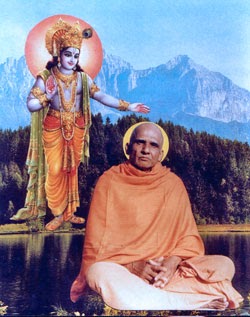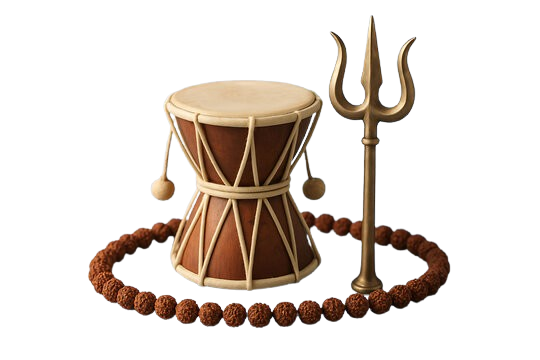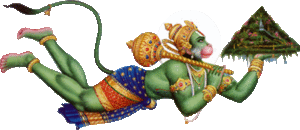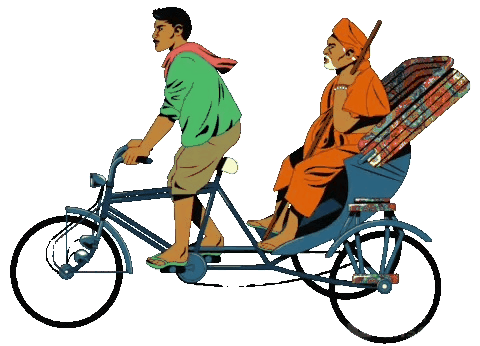Atharvaveda
Atharvaveda (अथर्ववेद)

The Atharvaveda (अथर्ववेद) is the fourth Veda and is often considered somewhat different in character from the Rigveda, Yajurveda, and Samaveda. While the first three Vedas (known together as trayi-vidya) are closely connected with rituals and sacrifices, the Atharvaveda reflects more of the everyday concerns of human life. It contains around 730 hymns and over 6,000 verses, composed in both poetry and prose, and is attributed to the sages Atharvan and Angiras.
This Veda is sometimes called the “Veda of Knowledge and Magic”, as it includes hymns, charms, prayers, and spells for practical purposes. It deals with a wide range of subjects such as healing from diseases, protection against evil forces, success in love, victory in battles, long life, and prosperity in household life. Many hymns are devoted to medicine and Ayurveda, making it one of the earliest sources of Indian medical knowledge. It also includes prayers for harmony in family and society, blessings for crops and cattle, and guidance on resolving conflicts.
At the same time, the Atharvaveda is not merely practical or magical—it also contains deep spiritual and philosophical reflections. Some of its hymns speculate on the nature of the universe, the soul (ātman), and the Supreme Being (Brahman). It includes discussions on creation, death, afterlife, and immortality. Thus, while it is grounded in daily life, it also elevates thought toward ultimate truths.
The Atharvaveda holds a special place because it shows the completeness of Vedic wisdom—embracing not just ritual and worship, but also health, social welfare, and spiritual liberation. It portrays the holistic vision of the Vedic seers, who saw no separation between the sacred and the practical. In this way, the Atharvaveda is both a manual for living a safe, prosperous life and a pathway to spiritual realization.
The Atharvaveda (अथर्ववेद) stands apart from the other three Vedas because it is not confined only to rituals and sacrificial worship but extends to the practical, social, and mystical aspects of human life. It contains around 20 books (kāṇḍas) made up of hymns, incantations, and prayers, addressing both worldly needs and higher spiritual truths. While the Rigveda praises deities, the Yajurveda instructs priests, and the Samaveda provides chants, the Atharvaveda brings together healing, protection, prosperity, and philosophy, showing the all-encompassing vision of Vedic wisdom.
A large portion of the Atharvaveda deals with medicine and health, making it one of the earliest sources for Ayurveda. It contains hymns for curing fever, wounds, skin diseases, and mental disorders, as well as charms for fertility and long life. It also addresses the use of herbs, plants, and natural remedies, highlighting the Vedic belief that nature itself is a divine healer. Alongside medicine, it offers protective charms and spells against evil spirits, curses, enemies, and misfortune—reflecting the fears and hopes of early society.
Yet, beyond the practical and magical, the Atharvaveda also delves into lofty philosophical ideas. It contains hymns on creation, the eternal Self (ātman), and the universal reality (Brahman). Some passages explore the mystery of life and death, the journey of the soul, and the nature of immortality. In this way, it bridges the gap between worldly life and spiritual pursuit.
Socially, the Atharvaveda emphasizes peace, unity, and harmony within families and communities. Hymns pray for concord between husband and wife, among brothers, and within society at large. It also seeks prosperity in agriculture, cattle rearing, and communal well-being, making it a guide for sustaining both individual and collective life.
Overall, the Atharvaveda reveals a unique dimension of Vedic wisdom: it is not only concerned with cosmic order and divine worship but also with human struggles, health, relationships, and survival. It teaches that the sacred and the everyday are not separate—the divine pervades all aspects of existence. Thus, the Atharvaveda is often described as a Veda of both worldly welfare (abhichara) and spiritual liberation (moksha).









































